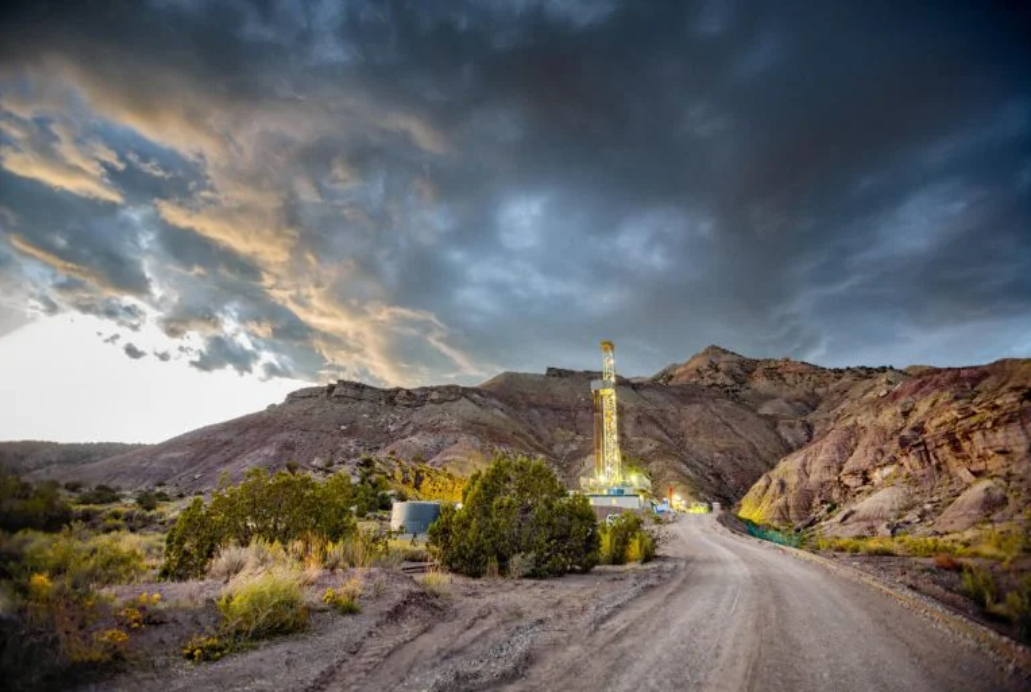New Study To Provide Important, Direct Measurement Data On Methane Emissions From Natural Gas Production
 While natural gas burns cleaner than other fossil fuels when combusted, methane leakage from the production, transportation, and use of natural gas has the potential to undermine some or all of those benefits, depending on the leakage rate. Methane is the main ingredient in natural gas and a greenhouse gas (GHG) pollutant many times more potent than carbon dioxide (CO2), the principal contributor to man-made climate change.
While natural gas burns cleaner than other fossil fuels when combusted, methane leakage from the production, transportation, and use of natural gas has the potential to undermine some or all of those benefits, depending on the leakage rate. Methane is the main ingredient in natural gas and a greenhouse gas (GHG) pollutant many times more potent than carbon dioxide (CO2), the principal contributor to man-made climate change.
In other words, leaks during the production, distribution, and use of natural gas could undermine, and possibly even overwhelm, the greenhouse gas advantage combusted natural gas has over coal and spell major trouble for the climate.
Up to this point, direct measurement data on methane leakage rates has been limited and subject to wide interpretation and debate. Some studies have estimated the leak rate to be as high as 7.9%, while others have estimated the leak rate to be as low as 1% for some aspects of the drilling process. Methane leakage matters, and has clear implications on whether natural gas can be seen as a lower carbon energy source. To help overcome some of the debate, EDF is working with leading academic researchers and industry leaders from across the natural gas sector to take direct measurements of leak rates to help better define the natural gas leak rate across the natural gas supply chain in the United States.
In partnership with the EDF and nine leading natural gas producers, today the University of Texas Austin (UT) announced the first part of this study, focused on emissions from natural gas production. The study will help provide a clearer picture of methane leakage rates occurring at natural gas drilling sites around the country. It is particularly relevant because drilling and completion processes have evolved rapidly in recent years – thanks to breakthroughs in horizontal drilling and hydraulic fracturing – and the knowledge about the methane leaked during this shift has not.
The main objective of this study on production emissions is to obtain scientifically rigorous data from multiple gas producing basins. The study will focus on quantifying emissions from well completions, gas well liquid unloading and well workovers, in addition to other more routine well-site fugitive emissions, the areas of the production process with the greatest leak rate uncertainties
The study is unique in that it brings multiple, key stakeholders to the table to make measurements of emissions at the well pad that will be shared when completed. If natural gas is to become an accepted part of an energy independence strategy, while supporting a clean energy future, it is critical to work together to quantify, and where ever possible lower, the existing methane leakage rate. Such an approach could yield enormous added environmental and health benefits from existing and future natural gas infrastructure.
A research team led by UT, including engineering and environmental testing firms URS and Aerodyne Research, is conducting the extensive field study. Project partners include EDF, Anadarko Petroleum Corporation, BG Group plc, Chevron Inc., Encana Oil & Gas (USA) Inc., Pioneer Natural Resources Company, Shell, Southwestern Energy, Talisman Energy, USA, and XTO Energy, an ExxonMobil subsidiary.
For more information on ways to get sustained benefits from natural gas, EDF published a paper earlier this year titled, “Greater focus needed on methane leakage from natural gas infrastructure.” Find more at edf.org/methaneleakage.












One Comment
I’m glad you’re working to reveal the danger methane leakage poses. It is hard for me to believe that climate change does not have an important place on the political agenda in the US. I also believe that the republican party has been bought out by the interests of big oil and natural gas production. If the US doesn’t change its ways with regard to climate change, I think we’re doomed as a species. How sad that greed has overtaken common sense in this country.